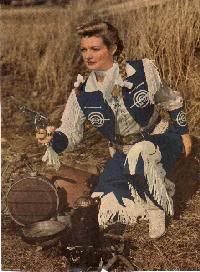With tensions rising and its police department and municipal budget
stretched thin, this small northeastern Pennsylvania city is about to
begin what the mayor calls one of the toughest crackdowns on illegal
immigrants in the United States.
"Illegal immigrants are destroying the city," said Mayor Lou Barletta, a Republican. "I don't want them here, period."
Last week Barletta introduced, and the City Council tentatively
approved, a measure that would revoke the business licenses of
companies that employ illegal immigrants; impose $1,000 fines on
landlords who rent to illegal immigrants; and make English the city's
official language.
As Congress debates changes to the nation's immigration policy, some
cities are taking matters into their own hands, saying they have no
choice but to crack down on illegal immigrants themselves.
Barletta said he had to act after two illegal immigrants from the
Dominican Republic were charged last month with shooting and killing a
man. Other recent incidents involving illegal immigrants have rattled
this former coal town 80 miles northwest of Philadelphia, including the
arrest of a 14-year-old boy for firing a gun at a playground.
"This is crazy," said Barletta, who took office in 2000. "People are
afraid to walk the streets. There's going to be law and order back in
Hazleton and I'm going to use every tool I possibly can."
In San Bernardino, Calif., voters will decide whether to adopt a
measure similar to the one in Hazleton. Elsewhere, an Idaho county
filed a racketeering lawsuit against agricultural companies accused of
hiring illegal immigrants. In New Hampshire, a pair of police chiefs
began arresting illegal immigrants for trespassing.
"They're being forced to pick up the financial tab for all of this
nonsense and they are doing whatever they can to find ways to combat it
at the local level," said Susan Tully, national field director of the
Federation for American Immigration Reform, which advocates limits on
immigration.
But Flavia Jimenez, an immigrant policy analyst at the National
Council of La Raza, said local authorities typically are not equipped
to enforce immigration laws. She predicted the Hazleton crackdown would
prompt a civil rights lawsuit.
When Barletta took office in 2000, only about 5 percent of the
city's 23,000 residents were Hispanic. The population has since shot up
to 31,000, with Hispanics now comprising 30 percent, lured to Hazleton
by cheap housing, a lower cost of living, and jobs in nearby plants,
factories and farms.
City officials don't know how many of the new arrivals are in the
U.S. illegally, but say they are fueling the drug trade, joining gangs
and committing other crimes.
Barletta's office has been flooded with hundreds of approving
e-mails and phone calls — from as far as California and Florida — and
he got an impromptu standing ovation when he walked into a Hazleton
diner for lunch.
"It's about time," said Francis X. Tucci, 57, who was born and
raised in Hazleton and owns a hair salon with tiny American flags in
the window in the heart of the Hispanic business district. "We were a
nice community. You find bad everywhere, I understand that, but we're
talking about here and now."
Hispanics are divided. Some approve, saying they are fed up with
crime and graffiti. "If I was mayor, I wouldn't let anyone in who had a
criminal record," said Rafael Rovira, 69, a naturalized American
citizen from the Dominican Republic.
Others view the proposal as punitive and unnecessary, saying that
most illegal immigrants obey the law and only want to work. "It's going
to scare a lot of people," said Christian Lechuga, 23, who emigrated
from Mexico eight years ago.













